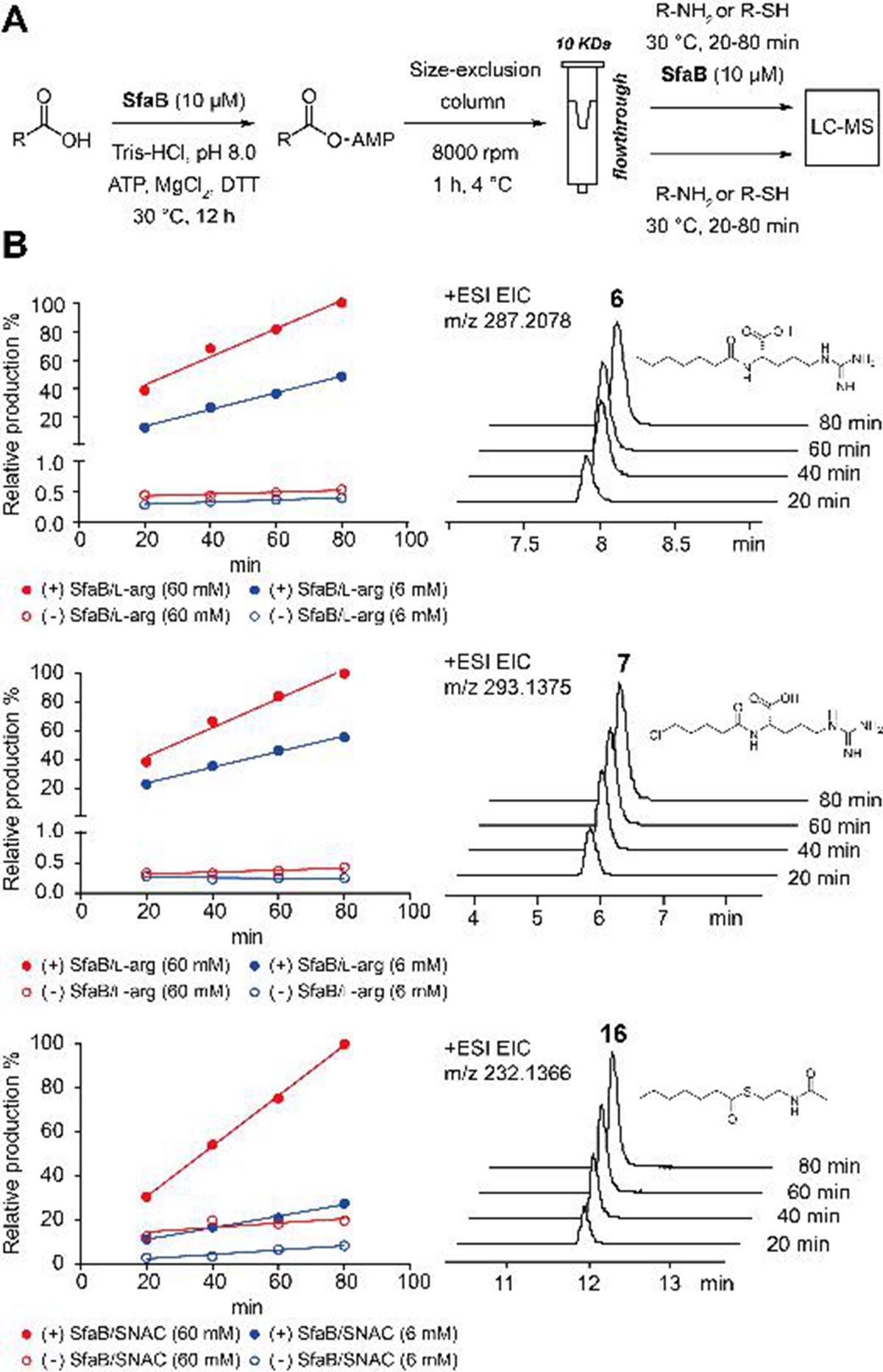核心提示: 近日,我校农业微生物学国家重点实验室、生命科学技术学院何璟教授课题组在链霉菌中发现了一个具有底物宽泛性的腺苷化酶,同时具有酰胺化和硫酯化反应的能力,并判断这是一种有较大应用价值的新型生物催化酶。
南湖新闻网讯(通讯员 何璟)1月25日,我校农业微生物学国家重点实验室、生命科学技术学院何璟教授课题组发表了其在天然产物生物合成酶研究方向的最新研究成果,他们在链霉菌中发现了一个具有底物宽泛性的腺苷化酶,同时具有酰胺化和硫酯化反应的能力,并判断这是一种有较大应用价值的新型生物催化酶。
酰胺在临床药物和活性天然产物中广泛存在。目前酰胺化合物主要通过化学合成,但生物催化形成酰胺键的反应条件更加温和,立体选择性高,并且没有环境污染,是未来酰胺化合物合成和生产研究的重点方向。该团队发现,在双异腈类铜离子螯合剂SF2768的合成酶催化体系中,腺苷化酶SfaB具有较大的底物宽泛性,不仅可以接受不同的短链脂肪酸及其末端取代物为底物,进行腺苷化反应,还能够接受不同的胺催化形成酰胺化合物,并且可以进一步将腺苷化的短链脂肪酸连接到肽基载体蛋白上完成硫酯化过程。
除了证实多功能催化酶SfaB的特异性,该团队还利用辅酶A(CoA)及其替代物N-乙酰半胱胺(SNAC)与不同的短链脂肪酸进行反应,构建出不同结构的小分子化合物库。此外,该团队建立了ATP循环利用系统,减少反应中消耗的ATP含量,进一步优化了该生物催化酶的反应体系,为其产业化应用提供了坚实的理论和实验基础。
本研究是何璟教授课题组在链霉菌天然产物生物合成研究领域取得的又一阶段性成果。上述研究得到国家自然科学基金、湖北省自然科学基金等经费的大力支持。

图 SfaB催化的酰胺化和硫酯化反应
审核人:何璟
【英文摘要】
Genome mining of microbial natural products enables chemists not only to discover the bioactive molecules with novel skeletons, but also to identify the enzymes that catalyze diverse chemical reactions. Exploring the substrate promiscuity and catalytic mechanism of those biosynthetic enzymes facilitates the development of potential biocatalysts. SfaB is an acyl adenylate‐forming enzyme that adenylates a unique building block, 3‐isocyanobutanoic acid, in the biosynthetic pathway of the diisonitrile natural product SF2768 produced by Streptomyces thioluteus, and this AMP‐ligase was demonstrated to accept a broad range of short‐chain fatty acids (SCFAs). Herein, we repurpose SfaB to catalyze amidation or thioesterification between those SCFAs and various amine or thiol nucleophiles, thereby providing an alternative enzymatic approach to prepare the corresponding amides and thioesters in vitro.
论文链接:https://onlinelibrary.wiley.com/doi/10.1002/anie.202010042
